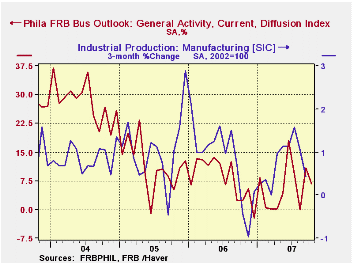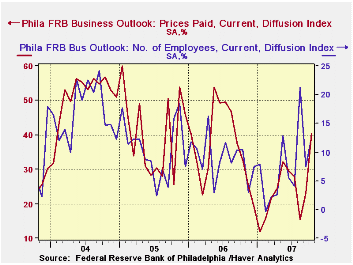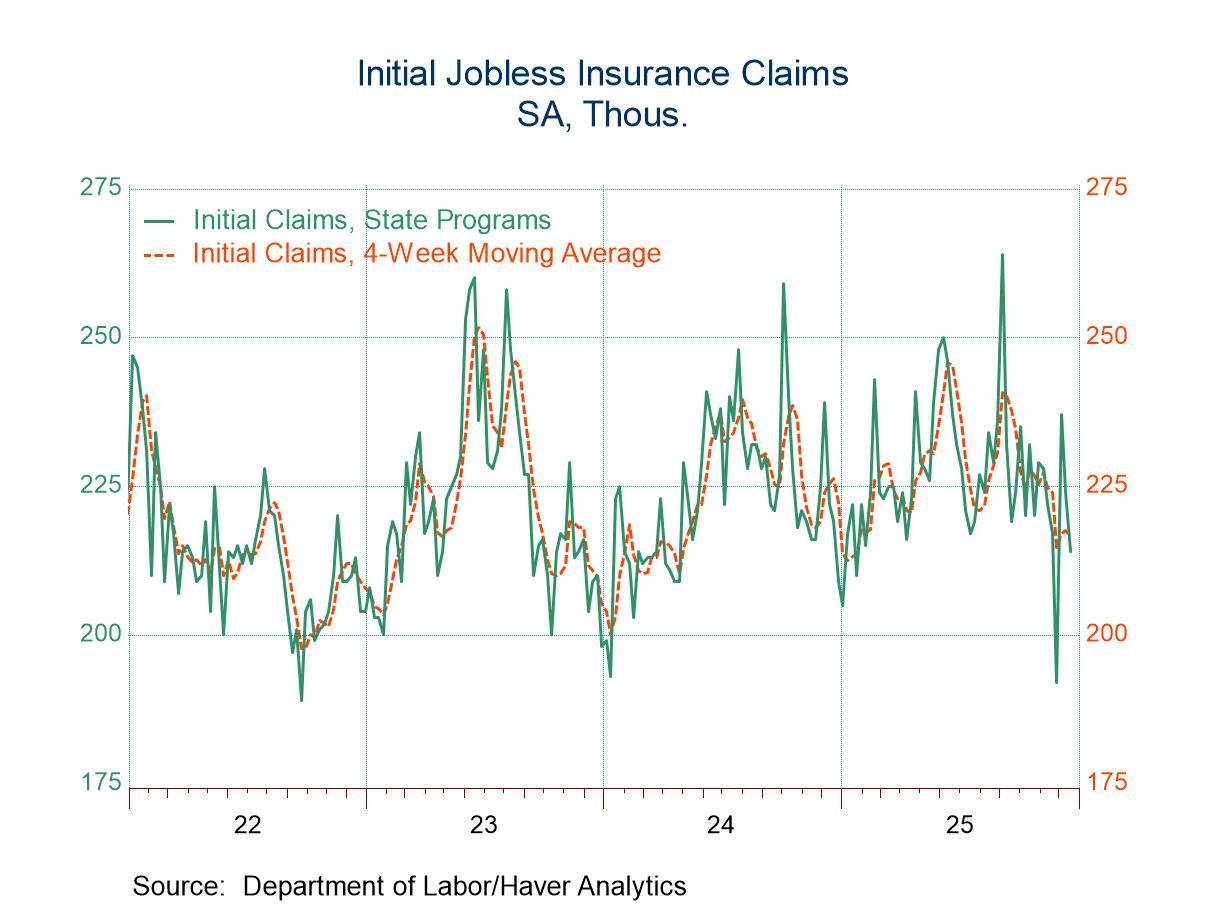 Global| Oct 18 2007
Global| Oct 18 2007Philadelphia Fed Index Dipped
by:Tom Moeller
|in:Economy in Brief
Summary
The Philadelphia Federal Reserve Bank's Index of General Business Conditions in the manufacturing sector dipped in October. The decline to 6.8 followed a great improvement in September to 10.9. During the last ten years there has been [...]

The Philadelphia Federal Reserve Bank's Index of General Business Conditions in the manufacturing sector dipped in October. The decline to 6.8 followed a great improvement in September to 10.9.
During the last ten years there has been a 59% correlation between the level of the Philadelphia Fed Business Conditions Index and the three-month growth in factory sector industrial production. There has been a 42% correlation with q/q growth in real GDP.
Fewer new orders and shipments seemed to account for much of the overall decline in the general index while employment improved. During the last ten years there has been a 75% correlation between the employment index and the three-month growth in factory payrolls.
The business conditions index reflects a separate survey question, not the sub indexes.
The prices paid index improved to its highest level since August of last year. During the last ten years there has been a 76% correlation between the prices paid index and the three-month growth in the intermediate goods PPI. There has been an 85% correlation with the change in core intermediate goods prices.
The separate index of expected business conditions in six months fell slightly but remained near its best level since late in 2004. Expectations for new orders were quite firm and though expectations for the number of employees fell from its recent high, it remained firm.
Subprime Side Effects in the Federal Funds Market from the Federal Reserve Bank of St. Louis can be found here.
| Philadelphia Fed Business Outlook | October | September | Oct. ‘06 | 2006 | 2005 | 2004 |
|---|---|---|---|---|---|---|
| General Activity Index | 6.8 | 10.9 | 2.3 | 8.1 | 11.5 | 28.1 |
| Prices Paid Index | 40.3 | 23.1 | 32.7 | 36.6 | 40.1 | 51.2 |
Tom Moeller
AuthorMore in Author Profile »Prior to joining Haver Analytics in 2000, Mr. Moeller worked as the Economist at Chancellor Capital Management from 1985 to 1999. There, he developed comprehensive economic forecasts and interpreted economic data for equity and fixed income portfolio managers. Also at Chancellor, Mr. Moeller worked as an equity analyst and was responsible for researching and rating companies in the economically sensitive automobile and housing industries for investment in Chancellor’s equity portfolio. Prior to joining Chancellor, Mr. Moeller was an Economist at Citibank from 1979 to 1984. He also analyzed pricing behavior in the metals industry for the Council on Wage and Price Stability in Washington, D.C. In 1999, Mr. Moeller received the award for most accurate forecast from the Forecasters' Club of New York. From 1990 to 1992 he was President of the New York Association for Business Economists. Mr. Moeller earned an M.B.A. in Finance from Fordham University, where he graduated in 1987. He holds a Bachelor of Arts in Economics from George Washington University.






